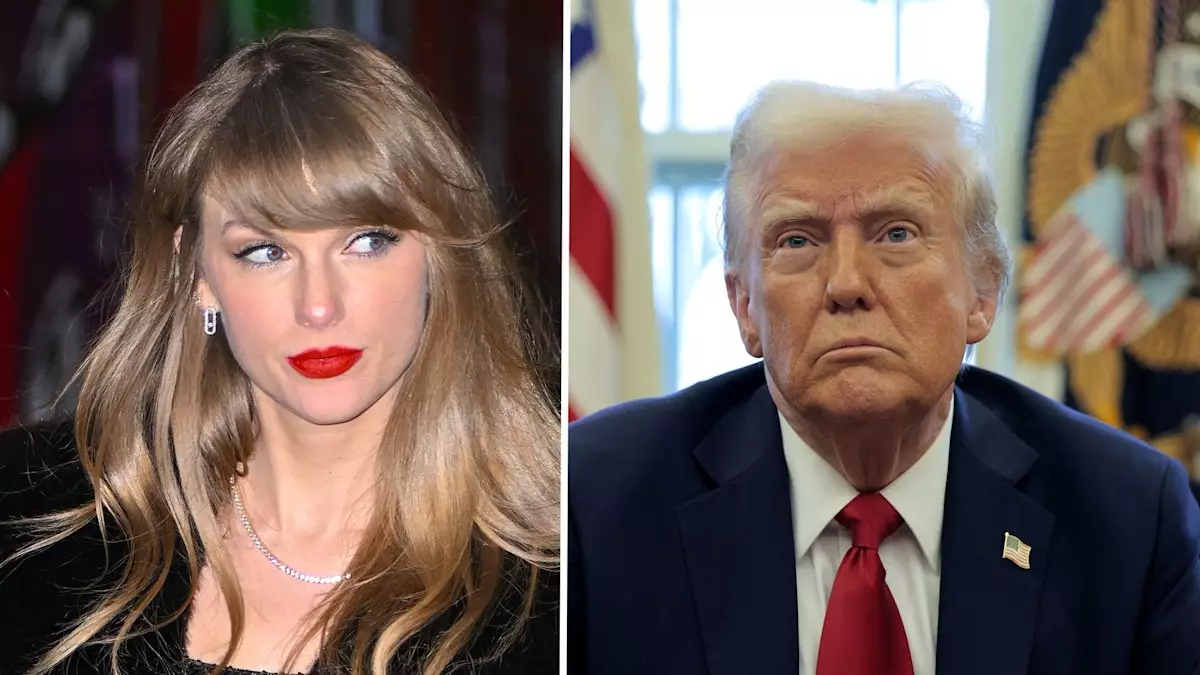In an unexpected twist of cultural and political dialogue, former President Donald Trump recently took to his platform, Truth Social, to critique pop superstar Taylor Swift. It’s a striking moment when a former president, rather than addressing pressing national issues, decides to engage in a public feud with a figure as influential as Swift. His tweets, particularly the statement “Has anyone noticed that, since I said ‘I HATE TAYLOR SWIFT,’ she’s no longer ‘HOT?'” reveal a shocking commodification of celebrity status intertwined with his unique brand of populism.
What is most striking is how Trump’s remarks reflect a broader trend where political figures engage with entertainment icons in a bid to rally their base. By positioning himself not just as a politician but as a pop culture commentator, he blurs the lines between political leadership and celebrity culture. This tactic appears to resonate with specific demographics that thrived on shows like “The Apprentice,” where the emphasis on personality and theatrics overshadowed the gravity usually associated with political discourse.
Political Theatrics in the Age of Social Media
Trump’s comments didn’t just stop at Swift; within a short time, he also targeted rock legend Bruce Springsteen for remarks made overseas. Springsteen criticized what he viewed as a ‘treasonous administration’ from Manchester, England. Trump’s response, laden with insult and ridicule, suggested a deeper fear: the voice and influence of artistic figures threaten the narratives he wishes to propagate.
His tweet about Springsteen, where he called the iconic musician a “dried out ‘prune’,” underscores a concerning trend in how political dialogue may devolve into personal attacks, particularly against those in the arts and entertainment industries. This behavior showcases a tit-for-tat mentality that can distract from substantive political discussions while fostering a culture of hostility towards differing viewpoints.
Swift’s Political Evolution
Taylor Swift’s rise to prominence has been punctuated by her willingness to engage in political matters. Her decision to publicly support Democratic candidates, particularly in a polarized political climate, positions her as a symbol of a generation eager for change. In her 2020 documentary, she emphasized the importance of “being on the right side of history,” illustrating her journey from a reticent star to an outspoken advocate.
What makes her political engagement even more compelling is the historic nature of her fanbase, a demographic that includes younger voters who are increasingly critical of traditional politics. Swift’s involvement contradicts Trump’s assertions that her political stance would alienate her, instead suggesting that she may garner even more support by boldly addressing the realities of the political landscape.
Family Connections and Contradictions
Adding another layer of irony to the feud is the fact that Trump’s daughter Ivanka and granddaughter Arabella are enthusiastic fans of Swift’s music. The stark contrast between Trump’s public tirades and his family’s admiration raises intriguing questions about the relationship between personal tastes and public personas. How can familial support for Swift exist alongside the antagonism expressed by Trump? This dichotomy reflects a common struggle within many families navigating different political ideologies while trying to appreciate cultural phenomena.
In a moment reminiscent of her popular music themes, such as betrayal and love, the juxtaposition of celebration and conflict neatly encapsulates the American landscape today—a nation grappling with divisions yet united by shared cultural experiences.
Cultural Commentary or Political Farce?
This ongoing saga of celebrity feuds serves as a critical lens into how politics might be more about spectacle than substance. As Trump postures against cultural icons, claiming dominance over public perception through derision, one must question the larger implications for American society. Are we witnessing a legitimate democratic process, or are we enmeshed in a reality show where the rules are dictated by charisma and outrage?
In a world where social media provides both a megaphone and a battleground, the stakes are high. Comments like Trump’s reveal an alarming tendency to diminish political discourse into trivial altercations while also showcasing the power of media and celebrities in shaping societal narratives. The intersection of politics and pop culture is not just a backdrop; it has become the stage upon which modern America finds itself unwillingly acting out its own drama.

